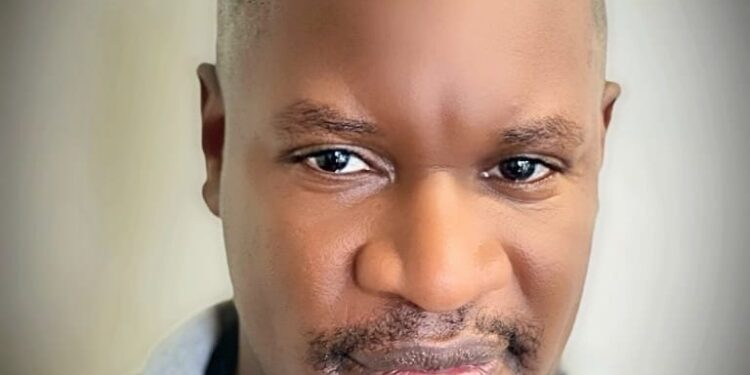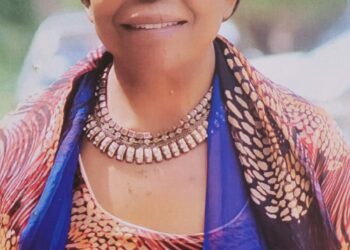Power is like a truth-pill that exposes the real character of a person. Former US president, Abraham Lincoln, once said, “Nearly all men can stand adversity, but if you want to test a man’s character, give him power.”
Once you achieve power, the fear of getting punished is reduced and hence people start showing their true character.
However, if you are a person of character, no amount of power can ever corrupt you. There have been few exceptions where even after attaining political power leaders were not corrupt. Few of such names are Abraham Lincoln and Nelson Mandela. In Uganda opposition, we have had Kiiza Besigye, Hussein Kyanjo, Imam Kasozi, Ken Lukyamuzi and a few others. And the bad examples in history are Adolf Hitler, Idi Amin, Milton Obote, Stalin, Mao, etc.
I personally think that “Power” is a double edge sword thing. Perhaps, Power itself may not corrupt a person, but could definitely become a catalyst of one’s road to self-destruction. An example of that near us would be President Museveni. He wasn’t really corrupt throughout the years he was opposing governments of Amin and Obote, but something changed as soon as he became president.
Basically, you have four options to cope with corruption: 1. Participate in it.2. fight it and be destroyed, 3. pretend you don’t see it. 4.Recognize it but choose not to participate in it. And I think if someone is very smart and very conscientious and very wise, he or she might be able to resist it and perhaps reduce it to some degree without being destroyed.
So, if you work at an organisation as corrupt as, for instance, the Uganda parliament, but you need your paycheck, you will usually find yourself with the same four options. In fact, that’s what the “whistleblower” protection is for – you can bring information to the appropriate authorities without being subject to reprisals (Supposedly).
MUSEVENI’S FAKE LETTER
I am afraid to say that Nupians have fallen again into Museveni’s trap. Did they actually think that Museveni wrote a letter questioning the amount of gratuity, not the legal aspect of it, to benefit NUP and Bobi? It is surprising that they thought that because of Museveni’s ‘fake’ letter, then Mpuuga was in trouble. There is this Igbo proverb that goes like this,”When a small bird is dancing in your path defiantly then know that there’s something or someone beating the drums for it ( encouraging the bird to have no fear)’’.
Mpuuga is undoubtedly a rival to Bobi Wine in NUP. Bobi saw an opportunity to mudsling his opponent and he took it. He even linked him to being a Museveni stooge. Now, with Museveni’s ‘fake’ letter questioning the gratuity the commissioners awarded themselves, it means Mpuuga is now insulated from being a regime apologist. And who knows the fake letter might have been helping Bobi,too, to kick Mpuuga down to the floor in the process. For the record, Statehouse has clarified that the letter in question was forged.The flip side of this situation is that someone managed to play Nupians using their own methods of operation – threw a fake letter out there and see their reaction, which is: Mpuuga, Mpuuga……ha ha ha.
The point is Ugandans must learn to critically analyse Museveni’s actions – nothing is in a black and white. People should learn from Museveni instead of just looking at him as president.
ANITA AMONG
It’s the same with the speaker Anita Among – she became speaker at the backer of majority NRM support, but we all know she was literally nothing in Uganda politics. All of a sudden, she started controlling the parliamentary budget of over shs.200 b a year. Then we read reports of her depositing huge amounts of money on her ‘friends’ accounts for withdraw later for suspicious activities. We all witnessed her unveiling the mother of a mansion in Bukedea that looked like a fiver star hotel. And dopeys think that she did all this without Museveni knowing anything(lol).
In March 2024, Museveni made an attempt to protect Speaker Anita Among from intense public scrutiny following grave allegations implicating her corruption scandals at Parliament.
10th May 2024, Museveni then wondered why the speaker would own houses in the UK, and he wanted to know if she declared them.
In Museveni’s letter to Hon. Jejje Odongo On 2nd May 2024, he indicated that he knew about UK’s intentions to sanction Kitutu and Nandutu for their role in Mabati issue, and UK’s intention to sanction Anita for owning houses in the UK. So, it looks like the issue with Anita is owning houses in the UK, not involvement in corruption, and if this is cleared, she’s as good as a new jet.
Museveni copes with his own corruption by adding more options to the four above: denial, find someone to sacrifice and implicate, brazen it out, counterattack, benefit privately, share and, do not get caught. These are the stages and/or the cardinal principles those with power follow to deal with their own corruption.
I think Anita may be sacrificed eventually if the UK insists on keeping the sanctions against her. Afterall, we can always use a ”Tayebwa” to keep the ship floating for a bit.
BOBI VS MPUUGA
Corrupt people are drawn to power. Some (I would argue most) people are corruptible to some extent or another, whether it’s something as mundane as making sure a relative gets a job at parliament ticket to embezzling millions of dollars or having someone who threatens your power murdered. Obviously, there’s a major difference between getting a job for a relative and murder, but they’re different ends on the spectrum of corruption.
For instance, the Uganda Citizens Forum for Justice and Equity have petitioned the USA, UK, European Union and South Africa to sanction Robert Kyagulanyi aka Bobi Wine for suspiciously buying properties in those respective countries using NUP funds and money given to him by the Diaspora community for the struggle. They quote the Magnitsky Act of 2016. But this is the same Bobi claiming to be fighting Mpuuga over corruption.
As long as Ugandans don’t see the clean people as an alternative to Museveni, then corruption will continue even after NRM. Glen David Brin, a well-known American author said wisely, “It’s said that “power corrupts,” but actually it’s truer that power attracts the corruptible. The sane are usually attracted by other things than power.” Basically, those with pure souls seldom end up in positions of power.
There is that famous saying “Power corrupts, and absolute power corrupts absolutely,” but it’s also important to remember that “just because something is a pithy saying doesn’t make it true.” Why do people start taking bribes or do shady business when they get into politics, for example? I can think of the following reasons:
It doesn’t hurt anyone directly. Corruption is indirectly hurting the country, but it is not directly a form of theft. And as a matter of fact, most citizens prefer to use tax loopholes if they are able to. So, we can’t state that not paying taxes is immoral, because most people would prefer not to pay taxes if they find some way to avoid it.
The second reason is Group pressure. If a person comes into a new group where everyone is doing deals under the table, it would be disloyal for him to refuse. It would put the group in danger and not bring him any benefits.
One upshot of all of this (if you believe it) is that therefore, the most important thing to get right in an organization’s design is how to choose which people are placed into positions of power. This means – in companies: methods of hiring, evaluation, and promotion – and in political systems: systems for elections and appointments. No matter the rules or existing conventions, they will be bent according to the will of those in power, so the overriding concern should be in ensuring that the systems which determine who attains positions of power chooses the right people.
However, anyone who thinks corruption can be eliminated altogether is foolish. Corruption’s weakness is that usually it prefers not to be seen in public. The corrupt prefer to engage in corruption where people aren’t fully aware of it. They don’t like the light of publicity.
Do you have a story in your community or an opinion to share with us: Email us at editorial@watchdoguganda.com













